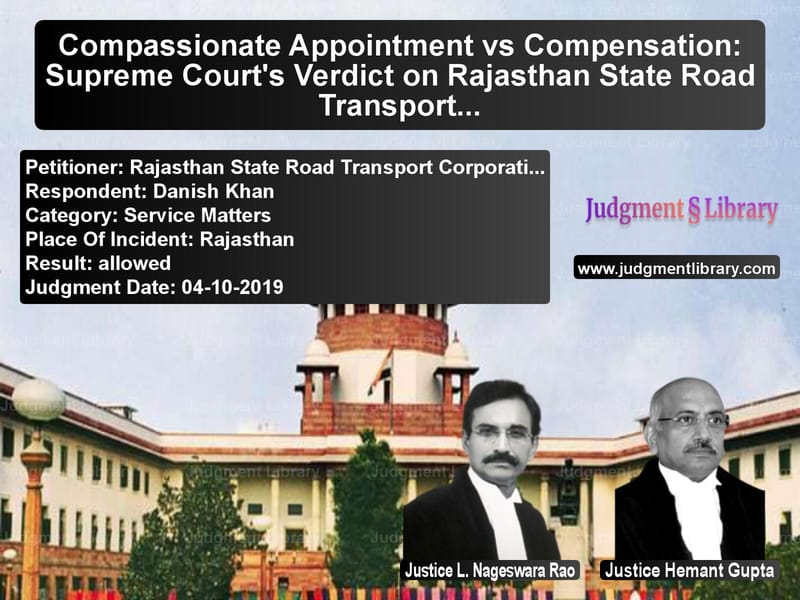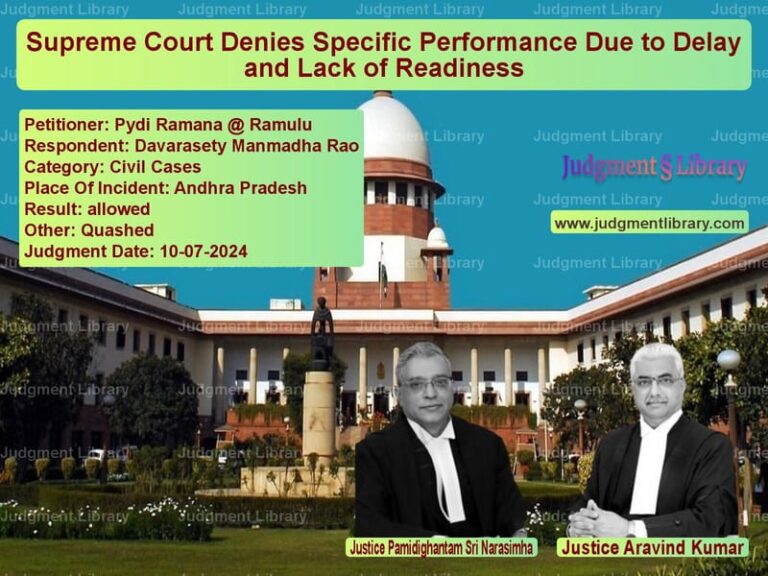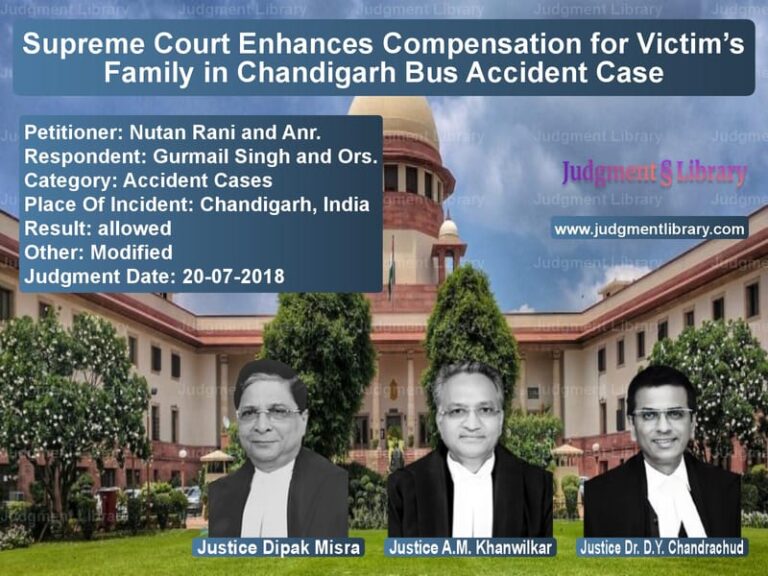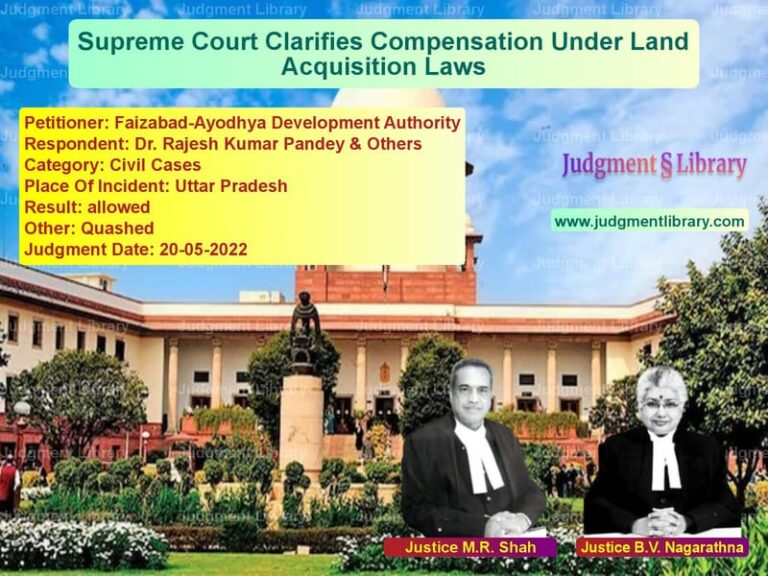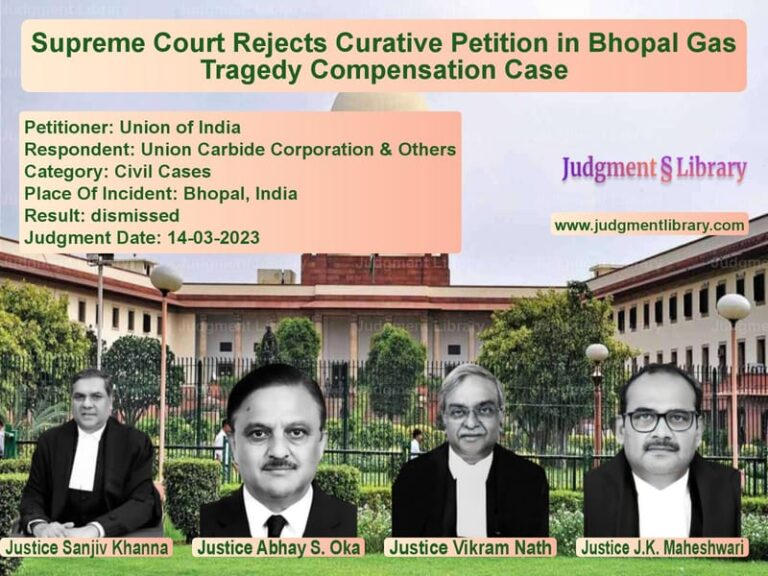Compassionate Appointment vs Compensation: Supreme Court’s Verdict on Rajasthan State Road Transport Corporation Case
The Rajasthan State Road Transport Corporation (RSRTC) recently found itself in legal controversy over its compassionate appointment policy. The case, which reached the Supreme Court, questioned whether an employee’s dependent can claim both compensation under the Motor Vehicles Act and compassionate appointment from the Corporation. The Supreme Court, in its ruling, overturned the Rajasthan High Court’s judgment that had declared Regulation 4(3) of the Rajasthan State Road Transport Corporation Compassionate Appointment Regulations, 2010, as unconstitutional.
Background of the Case
The dispute arose when Danish Khan, son of late Mohd. Shahid, sought compassionate appointment after his father’s death in a road accident involving an RSRTC vehicle. Mohd. Shahid was working as a Helper in the RSRTC and died while traveling in a Corporation-owned bus that collided with another bus. Danish Khan filed a claim under the Motor Vehicles Act, 1988, seeking compensation before the Motor Accident Claim Tribunal (MACT), which awarded him Rs. 22,95,775. Subsequently, he requested a compassionate appointment in RSRTC, which was rejected under Regulation 4(3).
High Court’s Ruling
Aggrieved by the rejection, Khan approached the Rajasthan High Court, challenging the constitutionality of Regulation 4(3), which bars dependents of deceased employees from claiming both compensation and compassionate appointment. The High Court ruled in his favor, stating that the regulation was discriminatory and violative of Article 14 of the Constitution. It reasoned that the Corporation could not differentiate between employees who died while traveling in RSRTC vehicles and those who perished in accidents involving private vehicles.
Supreme Court’s Judgment
The Supreme Court, led by Justices L. Nageswara Rao and Hemant Gupta, held that the regulation does not violate Article 14. The Court emphasized that RSRTC had classified dependents into two categories for a legitimate reason—those claiming compensation under the Motor Vehicles Act and those who did not. Since the Corporation had to bear the financial burden in cases where its vehicle was involved, it was reasonable to exempt itself from granting compassionate appointments in such cases.
The Court cited previous rulings, including National Insurance Company Limited v. Rekhaben and Others, to uphold the Corporation’s stance. It reiterated that while Article 14 forbids class legislation, it does not prohibit reasonable classification if it serves a rational purpose.
“Regulation 4(3) is intended to obviate the Corporation’s liability in paying compensation under the Act while simultaneously providing a compassionate appointment. The classification is based on an intelligible differentia and has a rational nexus with the objective sought to be achieved,” the Court observed.
Final Verdict
Setting aside the Rajasthan High Court’s order, the Supreme Court upheld Regulation 4(3) and ruled that since Danish Khan had already received compensation under the Motor Vehicles Act, he was not entitled to compassionate appointment. Thus, RSRTC’s rejection of his request was justified.
This ruling clarifies the legal position regarding compassionate appointments in cases involving compensation claims, reaffirming the principle that organizations can regulate such benefits to prevent financial burden.
Petitioner Name: Rajasthan State Road Transport Corporation.Respondent Name: Danish Khan.Judgment By: Justice L. Nageswara Rao, Justice Hemant Gupta.Place Of Incident: Rajasthan.Judgment Date: 04-10-2019.
Don’t miss out on the full details! Download the complete judgment in PDF format below and gain valuable insights instantly!
Download Judgment: Rajasthan State Road vs Danish Khan Supreme Court of India Judgment Dated 04-10-2019.pdf
Direct Downlaod Judgment: Direct downlaod this Judgment
See all petitions in Employment Disputes
See all petitions in Compensation Disputes
See all petitions in Judgment by L. Nageswara Rao
See all petitions in Judgment by Hemant Gupta
See all petitions in allowed
See all petitions in supreme court of India judgments October 2019
See all petitions in 2019 judgments
See all posts in Service Matters Category
See all allowed petitions in Service Matters Category
See all Dismissed petitions in Service Matters Category
See all partially allowed petitions in Service Matters Category

